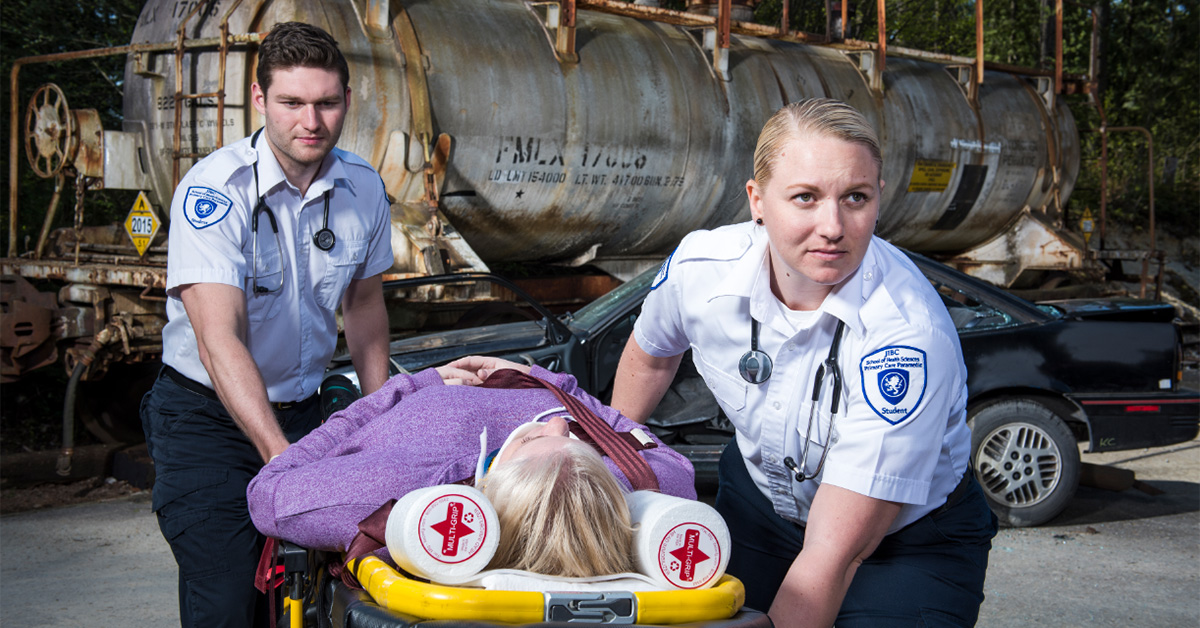Public safety professionals, including law enforcement officers, firefighters, and paramedics, are a vital part of strong communities, protecting individuals and property, responding to emergency situations, and saving lives.
At colleges and institutes across the country, unique training opportunities and applied research projects are preparing Canadians to work in the public safety sector, advancing the capacity of emergency response professionals, and making sure that Canada’s emergency management framework can be successfully implemented in communities with diverse challenges. For example:
- The Justice Institute of British Columbia (JIBC) is Canada’s unique leading public safety educator, developing dynamic justice and public safety professionals through applied education, training and research, training approximately 26,000 students on campus and online each year.
- Through its Centre for Applied Research, JIBC is also advancing justice and public safety, providing solutions to real-world questions that impact first responders, emergency managers, and other public safety professionals, including the development of a mental health screening tool for public safety personnel, through funding awarded by the Canadian Institutes of Health Research (CIHR).
- JIBC has also developed a web-based Aboriginal Disaster Resilience Planning (ADRP) guide to help First Nations, Métis, and Inuit communities assess emergency preparedness and build resiliency plans specifically designed to be compatible with Indigenous cultures and to ensure the continuity of traditional knowledge.
- Researchers at Grande Prairie Regional College have partnered with the RCMP, Alberta Health Services, and the City of Grande Prairie on a Police and Crisis Team (PACT) project to examine and improve upon police response to mental health issues in remote communities.
- Bow Valley College’s two-year Justice Studies diploma with Aboriginal Focus Specialization trains students for careers in justice sectors, covering topics such as psychology and mental health, correctional methods, and intervention strategies with youth.
- The Northern Justice and Criminology program at Yukon College also provides a uniquely northern perspective on the study of crime, justice, criminal behaviour, and social reactions to crime.
- For public safety and emergency services professionals, Fanshawe College offers a one-year Public Safety Leadership program to help advance their careers with the leadership skills necessary to move into roles such as staff sergeant, captain, charge nurse, or EMS superintendent.
- At Durham College, Fire and Life Safety Systems Technician students learn about the design and technical methodologies for various fire and life safety systems, including building codes and construction, fire alarm design and fire dynamics.
- The 911 Institute at Collège la Cité brings together under one roof training for professions related to emergency services, offering future police officers, firefighters, paramedics, 911 respondents and dispatchers, and security professionals an unrivalled environment for highly realistic simulation.
- The Cégep de Sainte-Foy offers seven programs in public health and safety, including Paramedic Emergency Care [Soins préhospitaliers d’urgence], taking advantage of sophisticated equipment and mannequins programmed to reflect targeted situations at the cégep’s Le Centre S, a specialized centre for clinical simulation.
- Public safety training at the Cégep Garneau includes protecting citizens and maintaining public order with the Police Technologies program [Techniques policières] and crime prevention and resocialization of offenders with the Delinquency Response Technologies program [Techniques d’intervention en délinquance].
- The Collège d’Alma’s Police Technologies for First Nations program [Techniques policières des Premières Nations] trains public safety officials with particular emphasis on the unique realities and challenges often faced by Indigenous communities.
- The Atlantic Police Academy (APA) at Holland College provides training to enter public safety careers such as firefighter, correctional officer, and conservation enforcement officer as well as in-service skills upgrading for those looking to advance their careers. APA is also a leader in the development of the Canadian Police Knowledge Network (CPKN), an innovative network of training and knowledge sharing between police and public safety professionals.
These types of programs, community partnerships, and applied research projects are a vital part of building Canada’s public safety and emergency management capacity.

